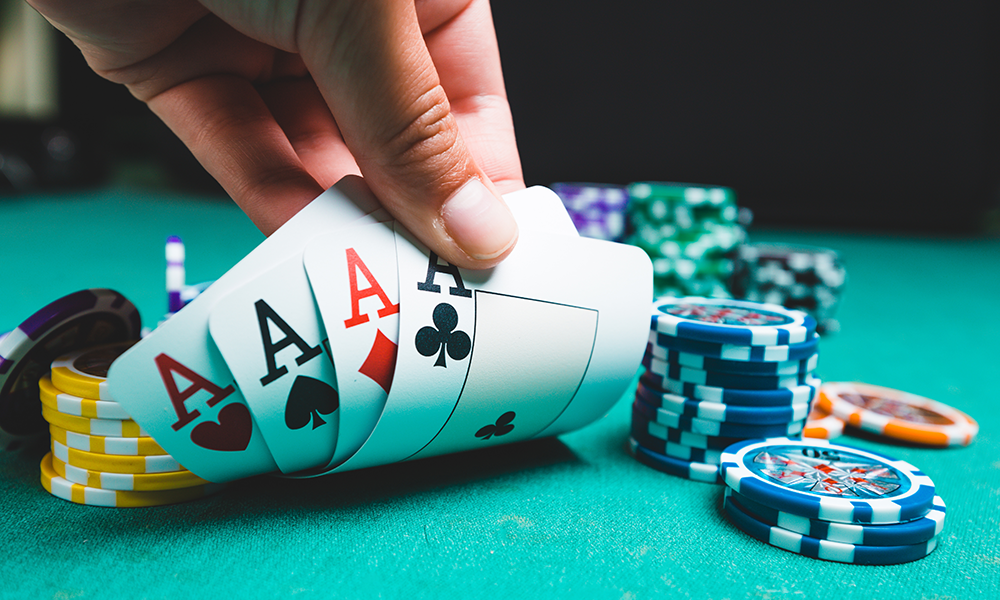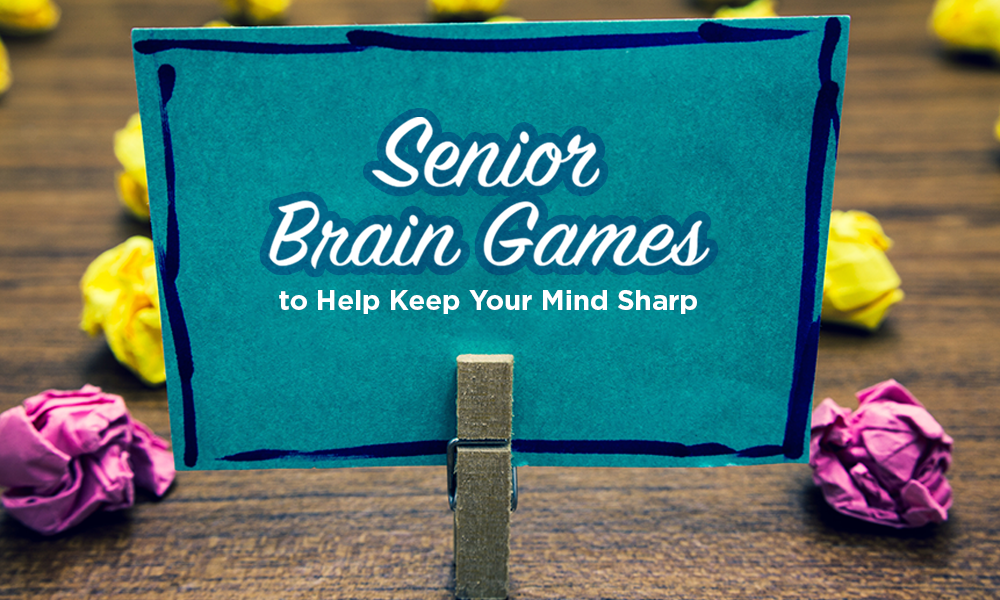As we get older, we start to notice changes in our bodies and minds. Along with physical effects like aches and pains, our brains aren’t as sharp as they once were. Although we can’t completely beat the test of time, there are different activities we can do to be proactive and improve our overall health.
Senior brain games are a fun and stimulating way to increase our cognitive functioning on a daily basis. Besides the social perks, there are countless benefits to be had when you join in on the fun. These include:
- A greater sense of independence
- Faster thinking skills
- Better memory
- Better concentration skills
- Improved general knowledge
- Improved hand-eye coordination
- Improvements to motor skills, such as writing and drawing
- Enhanced reaction times
Check out these entertaining senior brain games that you can play anytime, anywhere!
Crossword Puzzles
If you’re wondering how to keep your brain healthy, start by doing crossword puzzles. This is a great kind of senior brain game that has been popular for decades. Whether you find them in your daily newspaper, online, or in a book, crossword puzzles offer the same health benefits. They encourage players to use their memory recall function, as well as association capabilities that they need for matching clues with the word that fits the box. Association skills help to fight the symptoms of dementia.
Another benefit of this senior brain game is that it can be played solo or in teams. Teams encourage social interaction which has been found to also decrease your risk of dementia.
Chess
Keep things classic with a game of chess. This senior brain game is all about strategy, thinking ahead, and being creative. If you’ve never played it before, don’t worry. Geniuses aren’t the only ones that can dominate at this game. Take time to learn the basics and with each game you play, you’ll get better and better. It requires two players which checks off the social benefit. It also helps to boost brain health by sharpening your concentration skills and even increasing your IQ.
Jigsaw Puzzles
For those rainy days inside, grab a fuzzy blanket and set down with a jigsaw puzzle. Research has shown that ‘clicking,’ the act of finding and connecting two correct pieces, releases dopamine which is associated with happiness and an overall improved sense of well-being. This neurotransmitter can help to improve levels of concentration.
In addition, puzzles aid in sharpening your association skills, social skills (because they are often done in groups), and give you a sense of accomplishment when you click in that last puzzle piece.
 Scrabble
Scrabble
It’s time to win that triple letter score with this social senior brain game. We’ve all played Scrabble at one time or another and it always presents a great challenge. Not only does this game require you to scratch the depths of your mind to come up with a wide range of words, but it also encourages you to be strategic with your next move if you want to score the most points.
Like the previous senior brain games, Scrabble is played in groups which leads to many social benefits. Some of the most researched benefits of playing Scrabble include lowering blood pressure, improving memory functions, and creating an overall sense of happiness. This fun and relaxing game can also release endorphins, the “happy” neurotransmitters that make you feel good and improve your overall mood.
Card Games
Whether you and your family feel like keeping things lighthearted with a game of Uno or want to challenge yourselves at poker, you’re helping to improve your cognitive functioning with a deck of cards. There’s an endless list of card games to choose from and all of them offer a fun outlet for social interaction, mental stimulation, and maybe even a little prize at the end.
 Online Games
Online Games
In today’s digital era, online games have become extremely popular due to their convenience and on-the-go nature. There are plenty of apps to download onto your Smartphone or iPad, but it’s important to remember that some games are more beneficial than others.
Brain training apps are a specific category of online games that help players increase cognitive functioning in a stress-free, interactive way. One of the best features of these senior brain games is that most allow you to track your progress and improvement. This helps each player feel a sense of accomplishment when they see their hard work has paid off. Here are three brain training apps for you to get started with.
If you’re looking for a great source of daily challenges to improve your cognitive functioning, this is the perfect app. Try a new memory, logic, and number game every day. You can also do puzzles and game training on this free app.
This award-winning senior brain game helps you train with 35+ games that are designed to boost productivity, learning power, and skills in categories like math, reading, writing, speaking, and listening.
The Lumosity app takes scientifically-validated tasks and turns them into fun games that help you improve your skills in areas like problem solving, memory, attention, and processing speed.
Start Doing Your Brain Sharpening Exercises
No matter how old we are, it’s never too late to start thinking about how to better our cognitive functioning. While there are multiple ways to keep your mind sharp, senior brain games are one of the best options because they can lift your spirits and bring you closer together with family and friends.
Now that you’re starting on the path to a sharper mind, keep the momentum going by finding out how you can alter your lifestyle to boost your brain health.
